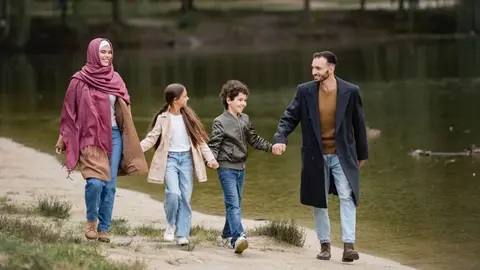Mohammed Ameza: ‘Tangier is a very pleasant city to live in and offers many investment opportunities’
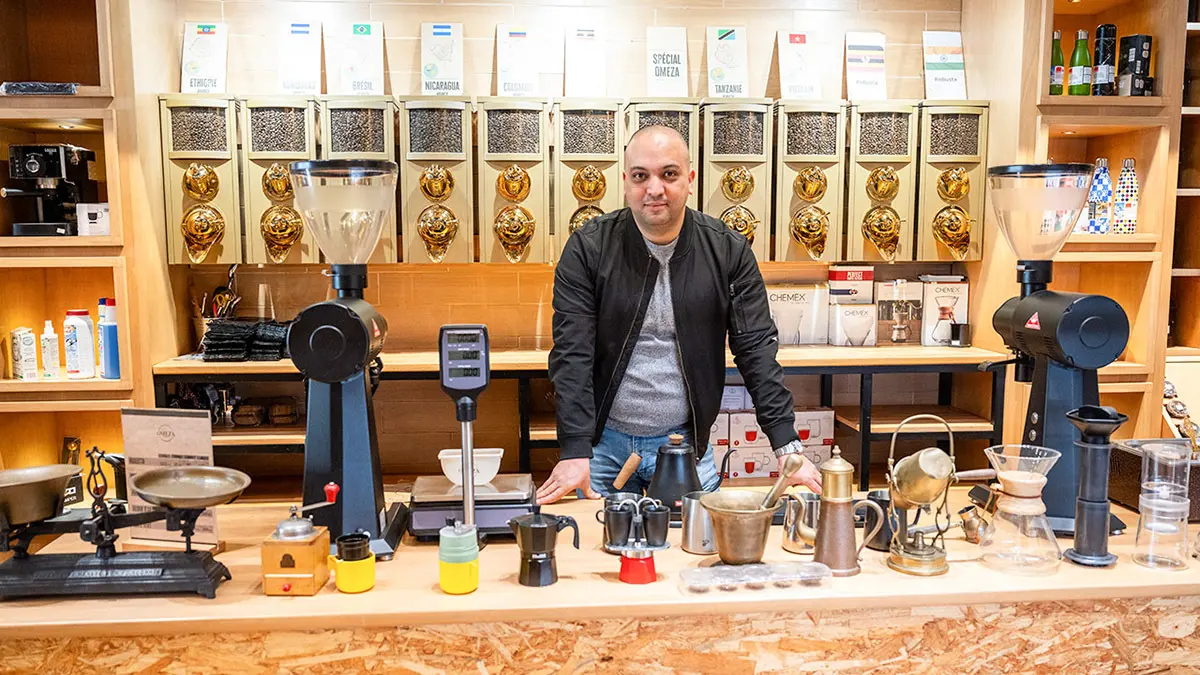
Fans of quality coffee and sweets should not miss the Omeza Coffee Gallery, a shop specialising in coffee run by Mohammed Ameza. Atalayar has spoken to the owner to find out more about the establishment.
How did Omeza Coffee Gallery get started? How long has it been running?
Omeza comes from Ameza, which is the family name. I am part of the third generation to roast and sell coffee. The love of coffee runs in the family: my grandfather, my parents, my uncles... my whole family has roasted coffee. I have tried to do something new, with a new generation of coffee shops called Coffee Gallery, which I opened two years ago in Tangier. It's a coffee gallery, which contributes more to coffee culture, for people who know how to drink it, how to prepare it... It's more than just a coffee shop.
What makes this gallery a special place?
Many things. At Omeza, we try to buy coffee by controlling its traceability, knowing where it comes from. Because the quality of coffee should be measured when it's raw. When coffee is roasted, you can't tell if it's a good coffee or not. That's why, at Omeza, we buy green coffee that we know where it comes from and we roast it here, every three or four days. We roast as much of the coffee we sell as we use to make the coffee that customers drink here.
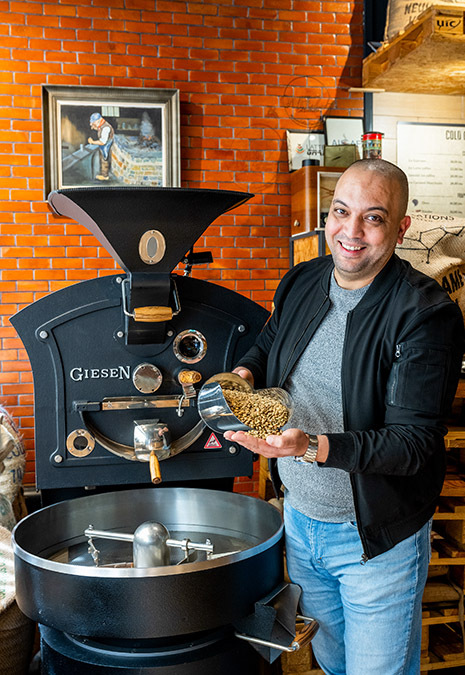
From how many countries and regions of the world do you have coffee?
We are buying more and more coffee from new origins. We have coffees from around 15 origins: Nicaragua, Colombia, Uganda, Tanzania, Vietnam, Ethiopia... The Ethiopian coffee sells very well here, as it is the country of origin of coffee, the first country to produce this drink, and it has a special flavour. We try to bring coffees from many origins so that consumers have a choice, and we always try to look for new origins.
And what's special about Omeza? Is it a blend?
Yes, because with Omeza Special we have tried to adapt it to the taste of Moroccan customers. It is a slightly strong coffee, but with aroma. It is a blend of Arabica and Robusta, because Robusta coffee has more caffeine, while Arabica coffee has more aroma. So we have tried to create the perfect blend.
Besides coffee, what other products do you offer in your shop?
When you come to a coffee shop, you don't just go for a coffee, you also need something to go with it, like a cake. That's why we've tried to offer special cakes, like the cinnamon roll, which is an American speciality, made with cinnamon. Cinnamon is a spice that goes very well with coffee. We also serve chocolates and other sweets with which we have tried to get away from the ordinary, offering products that you can't find anywhere else in Tangier.
And are the ice creams special too?
Yes; we make the ice cream in the traditional way too. Our customers are very satisfied with the quality.

What can customers find when they enter the Omeza Coffee Gallery? What would you highlight?
The special thing is that we don't serve the coffee to the customer straight away. First, we make sure to ask them what kind of coffee they want: a coffee to wake them up with more caffeine? Or a coffee to enjoy the aroma? We try to find the coffee that best suits the customer's taste. We don't have one coffee for everyone, but rather each customer can find the coffee that best suits their taste.
Is roasting coffee in front of customers one of the distinguishing features of your establishment?
Yes, of course. It is roasted in front of the customer because there are people who don't know what coffee is or that it comes from a plant. When they see the raw coffee, we explain where it comes from, that it is necessary to roast the beans and that, once roasted, it cannot be consumed immediately, but must be left to rest for at least 24 hours. Our job is not only to sell coffee to customers, but also to teach them how to drink it.
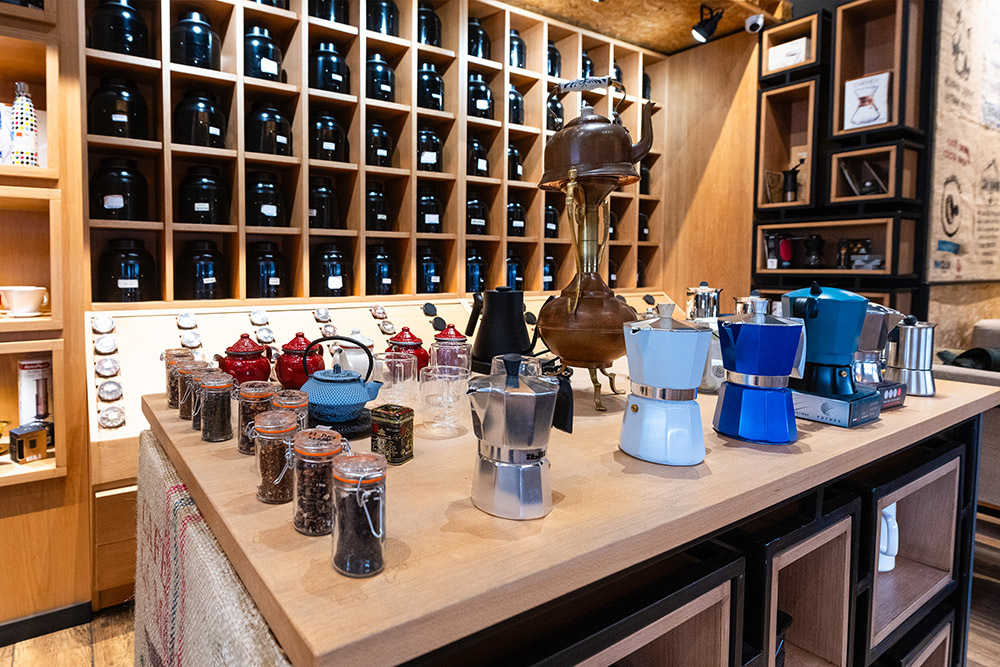
What is the key to making a good coffee?
To make a good coffee, an espresso, as they say in the coffee world, you need five things: blend, grind, machine, maintenance and manual skill. First of all, you need a good blend of coffees, like the Omeza speciality. Then there's the grind, which has to be perfect, depending on the machine you're going to use. Then there's the machine itself, which heats the water to the right temperature. Maintenance, making sure it is perfectly clean. And the last thing is the barista's hand, the person who makes the coffee. If you change one of these things, the coffee is not the same.
What kind of customers does the Omeza Coffee Gallery have?
We have many foreign customers because when they arrive in Tangier, they search Google for keywords, which are ‘speciality coffee’. We are not an ordinary coffee shop: we are a ‘speciality coffee’. Everything to do with coffee has changed a lot around the world. Going back to the customers, the majority are from Tangier and Morocco, but we also have Spanish customers who cross the Mediterranean from Tarifa every fortnight to buy coffee, because we are not far away. We also have French and English customers, from all over the world, because Tangier is an international city.
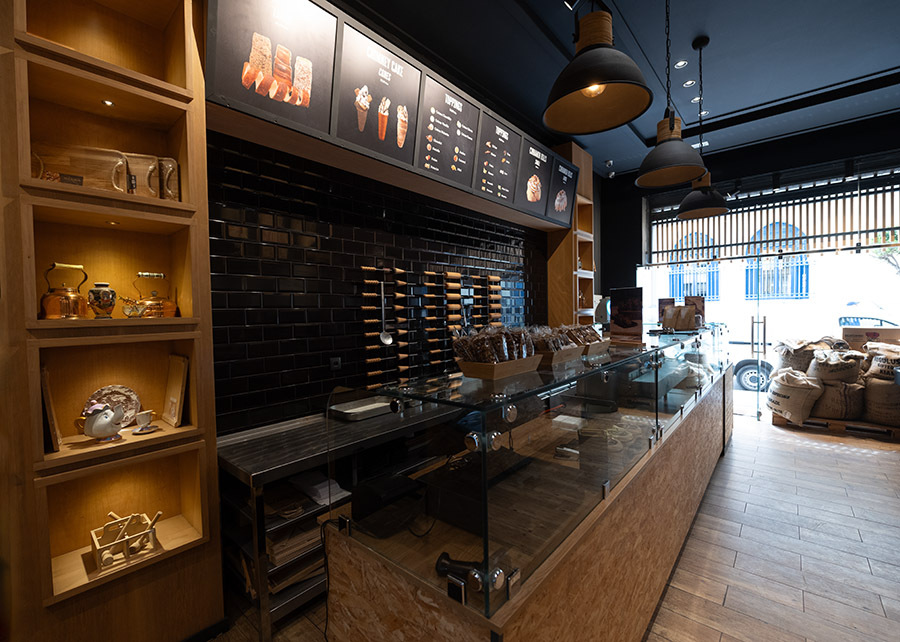
What would you prefer, for a customer to take the coffee away or drink it here?
If you're in a hurry, you have to take it away and make it where you are, because you have to drink coffee hot, in a cup, not in a paper cup. And if you're not in a hurry, you can sit down and enjoy a cup of coffee, with this atmosphere that also helps you to enjoy it. What's more, if you don't like the coffee you're having, we'll change it for you. We're willing to change the coffee for customers if they don't like the aroma, because all the coffees we offer are of good quality. There's no need to win on price, because what matters is offering quality.
Is the excellence in coffee that Omeza pursues for the most coffee-loving customers or for people who are new to the world of coffee?
It's obvious that we're looking for excellence. If you want to make a name for yourself, whether it's a coffee shop or any other kind of shop, you have to stand out from the rest by offering something excellent, something new. In our case, coffees with different flavours, for example, coffee with fruit, spices... There's a lot of variety and many ways of treating raw coffee to develop a special flavour.
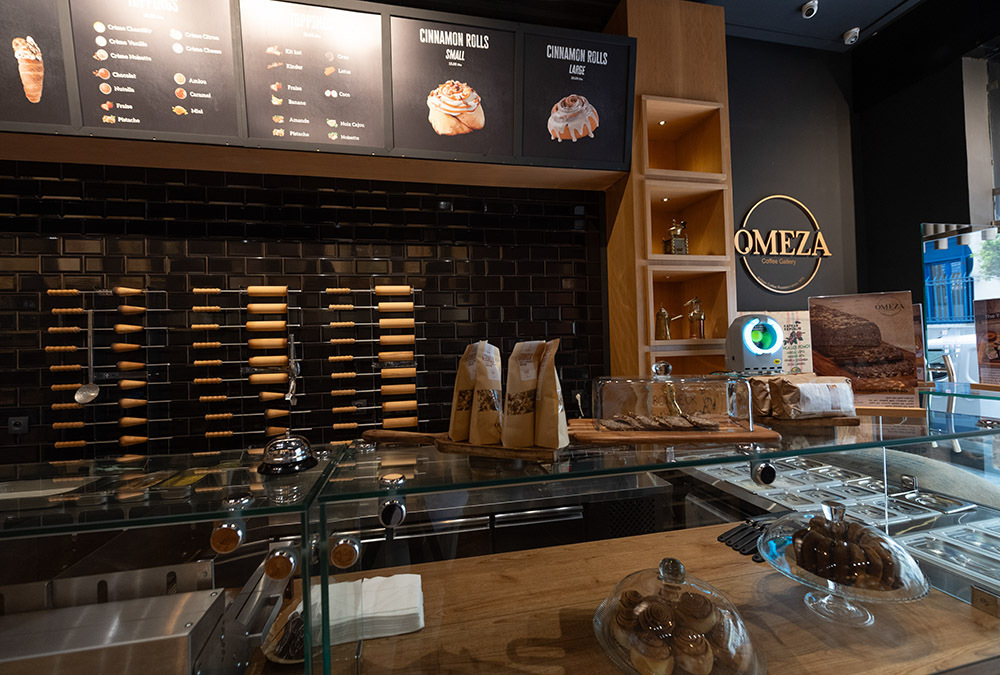
We see that you are doing work to expand the business...
We are trying to expand it in a way that allows us to offer a more comfortable service. Because, the more space, the more products we can offer our customers.
As a trader who has his business in Tangier, how do you assess the economic development that the city has undergone in recent years?
Tangier has evolved a lot: now, with the high-speed train, you can go to Casablanca in the morning, work and be back home after four or five hours. What's more, Spain is 20 minutes away and more and more airports are connecting the two countries. Tangier is the country's second economic centre after Casablanca and it's a pleasant place to live, with its many communities and cultures, which generate many opportunities.
Would you recommend a Spanish investor to come here to invest in Tangier?
I, for example, came to Tangier seven years ago. Before that I lived in Al Hoceima, further north. I came to Tangier because I saw that it offered great opportunities, being a busy city with lots of people: anyone coming from Europe has to pass through here to get to the rest of Morocco.


